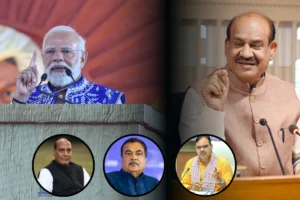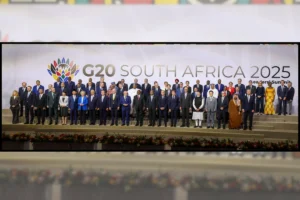
The Supreme Court has summoned self-proclaimed yoga guru Baba Ramdev to personally appear in a contempt case against Patanjali Ayurved for disseminating misleading advertisements, which violate the Drugs and Magic Remedies (Objectionable Advertisements) Act, 1954, despite giving an assurance to the court last November. Justices Hima Kohli and Ahsanuddin Amanullah issued a show cause notice to Baba Ramdev to respond to the initiation of contempt proceedings against him.
Additionally, the Bench instructed Acharya Balkrishna, the Managing Director of Patanjali Ayurved, to be present in court alongside Baba Ramdev for the next hearing in two weeks. This directive comes after Balkrishna failed to respond to a show cause notice issued on February 27, the previous hearing date. Despite explanations provided by senior advocate Mukul Rohatgi, representing Patanjali, for the lack of response, the Bench was not swayed.
Also Read: Union Minister Pashupati Kumar Resigns Over BJP’s Deal With Nephew Chirag Paswan’s Party
The court emphasized the necessity of hearing Baba Ramdev in the case, noting his endorsement of the Patanjali advertisements prohibited by the court on November 21, 2023. On that date, the Bench had issued a show cause notice to Patanjali and Balkrishna for violating their assurance to refrain from advertising their products as offering “permanent relief” for various ailments, as outlined in the 1954 Act.
Furthermore, the Bench highlighted Baba Ramdev’s violation of the Drugs and Magic Remedies (Objectionable Advertisements) Act, 1954, during a press conference held on November 22, immediately after the Supreme Court order.
Also Read: Kharge Predicts Modi’s Assurances Will Mirror Fate of ‘India Shining’ Campaign in 2004
During the February hearing, the petitioner, the Indian Medical Association, characterized Baba Ramdev’s association with Patanjali as contradictory, stating it was “everything and nothing at the same time.” The court reiterated its previous directives, emphasizing that no laws should be violated, particularly regarding misleading advertisements of medicinal products. Justice Kohli underscored that Patanjali had been instructed not to make any casual statements and to refrain from advertising its products as offering “permanent relief” for ailments under the 1954 Act.
In summary, the Supreme Court’s actions underscore the seriousness with which it views violations of advertising regulations, particularly in healthcare products, and emphasize the need for compliance with its directives.
To read more such news, download Bharat Express news apps






















